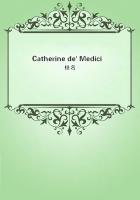If, in the friendship of which I speak, one could give to the other, the receiver of the benefit would be the man that obliged his friend; for each of them contending and above all things studying how to be useful to the other, he that administers the occasion is the liberal man, in giving his friend the satisfaction of doing that towards him which above all things he most desires. When the philosopher Diogenes wanted money, he used to say, that he redemanded it of his friends, not that he demanded it. And to let you see the practical working of this, I will here produce an ancient and singular example. Eudamidas, a Corinthian, had two friends, Charixenus a Sicyonian and Areteus a Corinthian; this man coming to die, being poor, and his two friends rich, he made his will after this manner. "I bequeath to Areteus the maintenance of my mother, to support and provide for her in her old age; and to Charixenus I bequeath the care of marrying my daughter, and to give her as good a portion as he is able; and in case one of these chance to die, I hereby substitute the survivor in his place." They who first saw this will made themselves very merry at the contents: but the legatees, being made acquainted with it, accepted it with very great content; and one of them, Charixenus, dying within five days after, and by that means the charge of both duties devolving solely on him, Areteus nurtured the old woman with very great care and tenderness, and of five talents he had in estate, he gave two and a half in marriage with an only daughter he had of his own, and two and a half in marriage with the daughter of Eudamidas, and on one and the same day solemnised both their nuptials.
This example is very full, if one thing were not to be objected, namely the multitude of friends for the perfect friendship I speak of is indivisible; each one gives himself so entirely to his friend, that he has nothing left to distribute to others: on the contrary, is sorry that he is not double, treble, or quadruple, and that he has not many souls and many wills, to confer them all upon this one object. Common friendships will admit of division; one may love the beauty of this person, the good-humour of that, the liberality of a third, the paternal affection of a fourth, the fraternal love of a fifth, and so of the rest: but this friendship that possesses the whole soul, and there rules and sways with an absolute sovereignty, cannot possibly admit of a rival.
If two at the same time should call to you for succour, to which of them would you run? Should they require of you contrary offices, how could you serve them both? Should one commit a thing to your silence that it were of importance to the other to know, how would you disengage yourself? A unique and particular friendship dissolves all other obligations whatsoever: the secret I have sworn not to reveal to any other, I may without perjury communicate to him who is not another, but myself. 'Tis miracle enough certainly, for a man to double himself, and those that talk of tripling, talk they know not of what. Nothing is extreme, that has its like; and he who shall suppose, that of two, I love one as much as the other, that they mutually love one another too, and love me as much as I love them, multiplies into a confraternity the most single of units, and whereof, moreover, one alone is the hardest thing in the world to find. The rest of this story suits very well with what I was saying; for Eudamidas, as a bounty and favour, bequeaths to his friends a legacy of employing themselves in his necessity; he leaves them heirs to this liberality of his, which consists in giving them the opportunity of conferring a benefit upon him; and doubtless, the force of friendship is more eminently apparent in this act of his, than in that of Areteus. In short, these are effects not to be imagined nor comprehended by such as have not experience of them, and which make me infinitely honour and admire the answer of that young soldier to Cyrus, by whom being asked how much he would take for a horse, with which he had won the prize of a race, and whether he would exchange him for a kingdom?--"No, truly, sir," said he, "but I would give him with all my heart, to get thereby a true friend, could I find out any man worthy of that alliance." --[Xenophon, Cyropadia, viii. 3.]-- He did not say ill in saying, "could I find": for though one may almost everywhere meet with men sufficiently qualified for a superficial acquaintance, yet in this, where a man is to deal from the very bottom of his heart, without any manner of reservation, it will be requisite that all the wards and springs be truly wrought and perfectly sure.
In confederations that hold but by one end, we are only to provide against the imperfections that particularly concern that end. It can be of no importance to me of what religion my physician or my lawyer is; this consideration has nothing in common with the offices of friendship which they owe me; and I am of the same indifference in the domestic acquaintance my servants must necessarily contract with me. I never inquire, when I am to take a footman, if he be chaste, but if he be diligent; and am not solicitous if my muleteer be given to gaming, as if he be strong and able; or if my cook be a swearer, if he be a good cook.
I do not take upon me to direct what other men should do in the government of their families, there are plenty that meddle enough with that, but only give an account of my method in my own:
"Mihi sic usus est: tibi, ut opus est facto, face."
["This has been my way; as for you, do as you find needful.--"Terence, Heaut., i. I., 28.]















